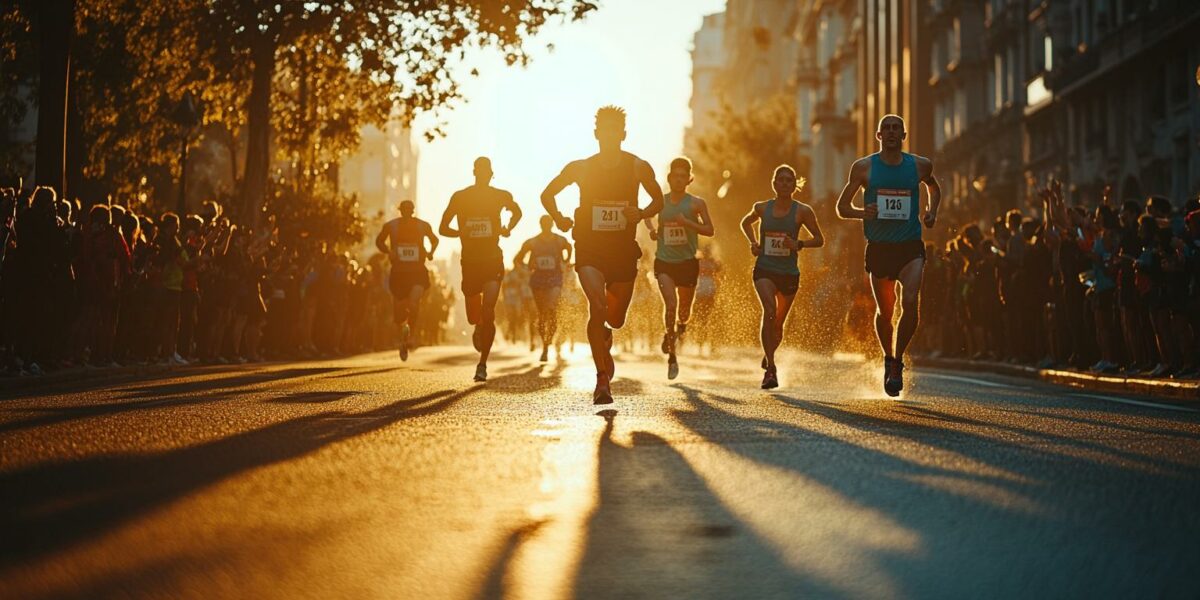Heatwaves and Physical Endurance
Runners are known for their resilience and ability to push through harsh conditions. However, the increasing frequency of heatwaves poses a severe threat. High temperatures can turn a challenging race into a dangerous endeavor, putting athletes at risk of serious health issues.
As the climate continues to warm, the risk of heat-related illnesses among runners increases. These illnesses range from heat exhaustion to life-threatening heatstroke. It’s essential for athletes to recognize the symptoms and take preventive measures to protect themselves.
Heat-related conditions can be exacerbated by high humidity, which hampers the body’s ability to cool down through sweating. This combination creates a perfect storm for potential health crises during endurance events.
Experts emphasize the importance of acclimatization to hot weather. Training in similar conditions can help athletes build tolerance and learn how to manage their hydration and energy levels effectively during races.
Adaptation Strategies for Runners
Runners and event organizers can implement several adaptation strategies to mitigate the risks posed by extreme heat. These strategies include:
- Modifying race schedules to cooler times of the day
- Increasing the number of hydration stations along the racecourse
- Providing cooling stations with fans and ice baths
Additionally, wearing appropriate clothing like lightweight, breathable fabrics can help runners stay cooler. Using sunscreens and hats can also protect against the oppressive heat.
Organizers should also ensure that medical personnel are readily available to assist runners showing signs of heat stress. Quick responses can make a significant difference in preventing severe health outcomes.
Regular weather monitoring and making real-time adjustments to race plans can further enhance safety. This proactive approach can prevent unnecessary risks and keep participants safe.
The Role of Technology
Technological advancements offer new ways to monitor and manage heat risks. Wearable devices that track core body temperature and hydration levels can provide runners with real-time data to make informed decisions during races.
App-based platforms can alert runners about upcoming weather conditions and provide tips on staying safe. These tools can be crucial in planning training sessions and races around safer conditions.
Innovations in fabric technology also contribute to better performance in hot climates. Cooling fabrics and gear designed to wick away sweat more effectively can help runners maintain optimal body temperatures.
Furthermore, virtual racing events are emerging as a safe alternative during extreme weather conditions. Runners can participate from various locations, reducing the risk of exposure to dangerous heat levels.
Community and Policy Support
Community awareness and support play a vital role in protecting runners. Local governments can implement policies to ensure adequate public hydration stations in parks and popular running trails.
Public health campaigns can educate runners on the dangers of heat and the importance of proper hydration and rest. Collaborative efforts between health experts and running communities can foster a culture of safety.
Event organizers should collaborate with meteorologists to predict and respond to extreme weather conditions effectively. This partnership can lead to better-preparedness and safer racing environments.
Ultimately, the collective effort of individuals, communities, and policymakers is crucial in adapting to the growing threat of climate change. Together, we can ensure that the spirit of running remains strong and safe in the face of rising temperatures.



Mia
LOL, time to switch to virtual racing! No more sunburns! 😆
FelixFlux
Can race organizers really modify schedules that easily? Sounds complicated.
matthew
Thx for the tips on adaptation strategies! Will definitely use them in my next race.
Anthony_Mirage
Isn’t this more a problem for elite athletes than for casual runners?
Audrey_Whisperer
Seems like we should all invest in those new wearable devices! Who’s got recommendations?
Chloe
Interesting read! What are the best practices for hydration during a race?
theodore
How can beginners acclimate to hot weather without risking their health?
haley
Great article, but what about indoor running events? Could they be a safer option?
Ethan
Does this mean we should avoid running marathons altogether? 😟
Rose4
Wow, this is really eye-opening. Thanks for sharing! 🌞